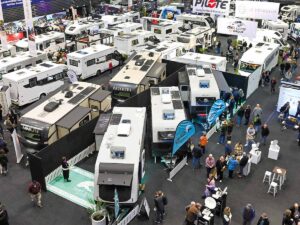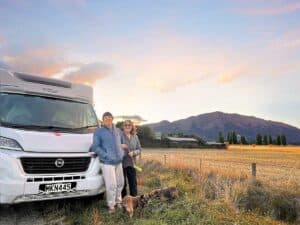In our 15 months or so of travelling, we have observed that there seems to be two distinct types of 'on the road cuisine'.
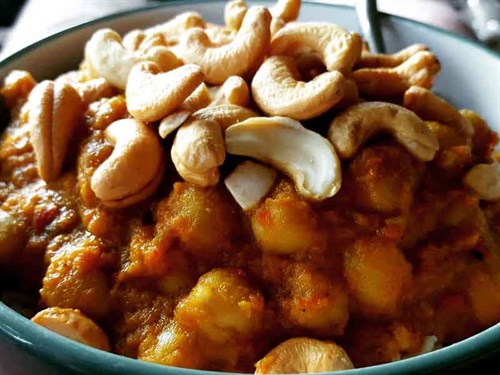
The first (usually people in campervans or cars) seem to exist largely on two-minute noodles, macaroni cheese out of a packet, and the occasional minced beef patty. At the other end of the scale are those (usually those in larger motorhomes) who have a full kitchen and are able to cook pretty much everything from scones to a full roast.
At the start of our travels, Gareth and I fitted very much into the first group. Everything we ate came out of a tin or packet. Fresh vegetables were pretty much non-existent and before long, our health had started to suffer. However, over time we have grown remarkably in confidence and experience and can now say we definitely come under the second category. We eat an amazing range of delicious, healthy food every single day. Yet we still live in the same tiny campervan. Other campers are always amazed at the food we eat and wonder how we do it, but there is no real secret—it's just a combination of a well-established routine, motivation, and above all, mindset.
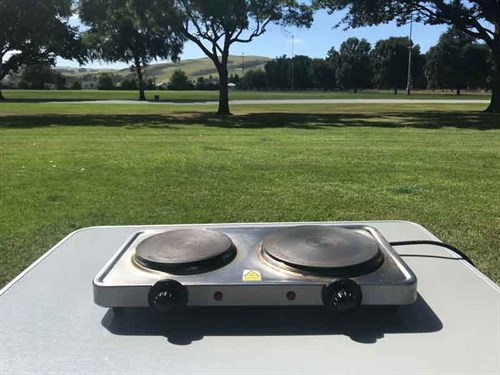
You see, many people think that just because they are camping or on the move, they can't possibly eat properly without a large kitchen or a lot of gadgets. This is due to conditioning. It's what they're used to and have always had, plus camping is supposed to be about getting back to basics and 'going without', right? But we carry only the bare minimum with us in our van and always have. We didn't even own a kettle for the first seven months of our travels.
Every meal we make is made using nothing more than a tiny two-burner stove ($39 from Kmart) and occasionally a small crockpot (also $39 from The Warehouse). Here is our kitchen equipment, in a nutshell:
1 frying pan
1 medium-size saucepan
1 small saucepan
2 dinner plates, 1 mixing bowl, 2 measuring jugs
2 noodle bowls, 2 cereal bowls
2 spatulas, 1 serving spoon, 1 ladle, 1 wooden spoon, potato peeler
2 small, sharp knives
Knives, forks, and spoons x 4 each
4 plastic containers with lids for storing leftovers
4 drinking glasses
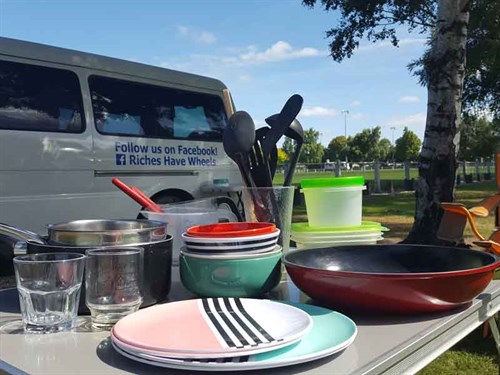
Small space, big flavour
Everything we cook is made completely from scratch and there are no convenience foods in our pantry. What we do have is a lot of herbs and spices. They are so economical and will make any meal taste great. We also love to use sauces and seasonings. Often it is these that can turn an ordinary dish into something amazing. These kind of ingredients take up little room and last for months, which helps with another issue many people on the road have—how to stop food from 'going off'.
Storage
It's no surprise that lack of storage space is the biggest problem when cooking on the road. Nobody wants to get food poisoning when you're supposed to be on holiday. We didn't have a fridge for the first five months, and although we do now, it is still very small. And while we have a little pantry, it can still get pretty chaotic.
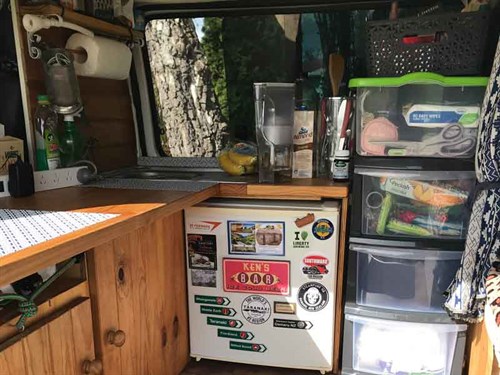
For us, the best investment was to get a cheap plastic clear drawer unit from The Warehouse. It doesn't take up much space, being tall and thin, and we can fit a huge amount of food in here, from tins to dried goods to fresh vegetables. Even in summer, most of our fresh vegetables can be kept cool in here for at least a week. We just add a couple of freezer blocks to the 'vegie drawers' as required.
We also learned a terrific tip from other long-time motorhomers recently about how they make their own 'fridge'. All you need is a towel and a bucket. Simply put your food into the bucket, cover it with a wet towel, then place it out in the sun (yes, really!) or up in a tree. To keep your 'fridge' running, you just need to re-soak the towel. As the sun heats the wet towel, the water evaporates, removing heat from the bucket and keeping the contents inside cool. It's actually an ancient technique and works a treat!
Eat well without breaking the bank
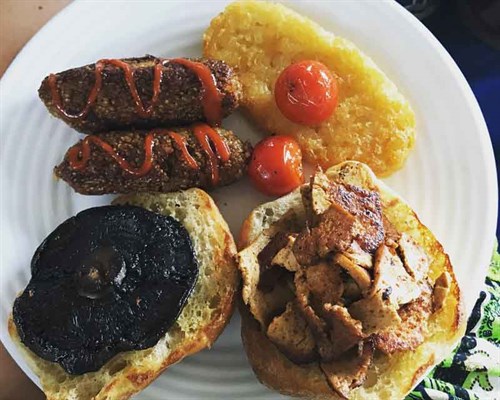
For us, planning is key. Once a week we plan a week's worth of meals and take our list shopping. It only takes a few minutes to work out a plan and is well worth the effort. Sometimes we may need to top up on fresh vegies but on the whole we can often get 10 days' worth of meals out of one shop. This saves us so much money, not to mention time not having to grab more bits and pieces every couple of days. Our weekly supermarket shop, plus making sure we buy only what is in season, keeps our food bill low.
So what do we eat?
With the exception of pies (haven't managed to work out how to cook pastry in a frying pan yet!) we eat pretty much anything you would normally eat in a house. Admittedly, it's been a lot easier since we went vegan five months ago, but only in terms of refrigeration, storage, and cleaning up, not cooking.
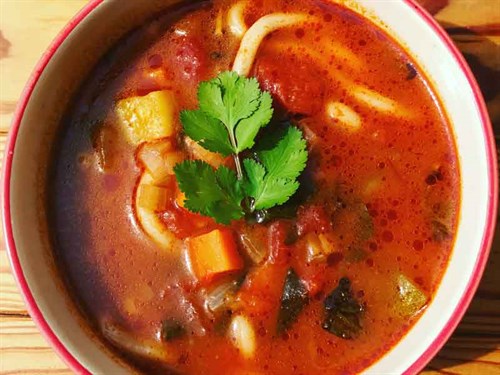
One-pot meals are great, especially when you only have two pots. But there are so many better, taster options than pasta and sauce in a packet.
To give you an idea of the healthy, balanced, and varied food we eat, we have put together a 79-page recipe e-book featuring our favourite recipes so far. It's absolutely free and we are very proud of our recipes. It goes to show how well it is possible to eat on the road, regardless of vehicle size and facilities. You can download it from our recipes page.

